Lifestyle and dietary interventions for Ménière's disease
- PMID: 36848645
- PMCID: PMC9969956
- DOI: 10.1002/14651858.CD015244.pub2
Lifestyle and dietary interventions for Ménière's disease
Abstract
Background: Ménière's disease is a condition that causes recurrent episodes of vertigo, associated with hearing loss and tinnitus. Lifestyle or dietary modifications (including reducing the amount of salt or caffeine in the diet) are sometimes suggested to be of benefit for this condition. The underlying cause of Ménière's disease is unknown, as is the way in which these interventions may work. The efficacy of these different interventions at preventing vertigo attacks, and their associated symptoms, is currently unclear.
Objectives: To evaluate the benefits and harms of lifestyle and dietary interventions versus placebo or no treatment in people with Ménière's disease.
Search methods: The Cochrane ENT Information Specialist searched the Cochrane ENT Register; Central Register of Controlled Trials (CENTRAL); Ovid MEDLINE; Ovid Embase; Web of Science; ClinicalTrials.gov; ICTRP and additional sources for published and unpublished trials. The date of the search was 14 September 2022.
Selection criteria: We included randomised controlled trials (RCTs) and quasi-RCTs in adults with Ménière's disease comparing any lifestyle or dietary intervention with either placebo or no treatment. We excluded studies with follow-up of less than three months, or with a cross-over design (unless data from the first phase of the study could be identified). DATA COLLECTION AND ANALYSIS: We used standard Cochrane methods. Our primary outcomes were: 1) improvement in vertigo (assessed as a dichotomous outcome - improved or not improved), 2) change in vertigo (assessed as a continuous outcome, with a score on a numerical scale) and 3) serious adverse events. Our secondary outcomes were: 4) disease-specific health-related quality of life, 5) change in hearing, 6) change in tinnitus and 7) other adverse effects. We considered outcomes reported at three time points: 3 to < 6 months, 6 to ≤ 12 months and > 12 months. We used GRADE to assess the certainty of evidence for each outcome. MAIN RESULTS: We included two RCTs, one related to diet, and the other related to fluid intake and sleep. In a Swedish study, 51 participants were randomised to receive 'specially processed cereals' or standard cereals. The specially processed cereals are thought to stimulate the production of anti-secretory factor - a protein that reduces inflammation and fluid secretion. Participants received the cereals for three months. The only outcome reported by this study was disease-specific health-related quality of life. The second study was conducted in Japan. The participants (223) were randomised to receive abundant water intake (35 mL/kg/day), or to sleep in darkness (in an unlit room for six to seven hours per night), or to receive no intervention. The duration of follow-up was two years. The outcomes assessed were 'improvement in vertigo' and hearing. As these studies considered different interventions we were unable to carry out any meta-analysis, and for almost all outcomes the certainty of the evidence was very low. We are unable to draw meaningful conclusions from the numerical results.
Authors' conclusions: The evidence for lifestyle or dietary interventions for Ménière's disease is very uncertain. We did not identify any placebo-controlled RCTs for interventions that are frequently recommended for those with Ménière's disease, such as salt restriction or caffeine restriction. We identified only two RCTs that compared a lifestyle or dietary intervention to placebo or no treatment, and the evidence that is currently available from these studies is of low or very low certainty. This means that we have very low confidence that the effects reported are accurate estimates of the true effect of these interventions. Consensus on the appropriate outcomes to measure in studies of Ménière's disease is needed (i.e. a core outcome set) in order to guide future studies in this area and enable meta-analyses of the results. This must include appropriate consideration of the potential harms of treatment, as well as the benefits.
Copyright © 2023 The Authors. Cochrane Database of Systematic Reviews published by John Wiley & Sons, Ltd. on behalf of The Cochrane Collaboration.
Conflict of interest statement
Katie Webster: none known.
Kevin Galbraith: none known.
Ben George: none known.
Ambrose Lee: none known.
Natasha A Harrington‐Benton: Natasha Harrington‐Benton is the Director of the Ménière's Society, a national charity supporting people with vestibular conditions. The Ménière's Society supports research in various ways, including distributing surveys and/or providing grant funding for projects studying vestibular conditions. Some of the studies they have previously funded may be included in the review. They do not carry out the research themselves and are not directly involved in projects.
Owen Judd: none known.
Diego Kaski: none known.
Otto R Maarsingh: none known.
Samuel MacKeith: Samuel MacKeith is the Assistant Co‐ordinating Editor of Cochrane ENT, but had no role in the editorial process for this review. He sees patients with Ménière's disease in his NHS and private practice and is the co‐director of a company providing private vestibular function testing services.
Louisa Murdin: none known.
Jaydip Ray: none known.
Vincent A Van Vugt: none known.
Martin J Burton: Martin Burton undertook private practice until March 2020 and saw some patients with Ménière's disease. He is the Co‐ordinating Editor of Cochrane ENT, but had no role in the editorial process for this review.
Figures


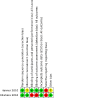
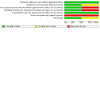
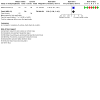
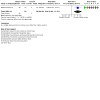


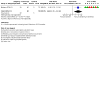
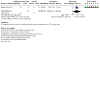
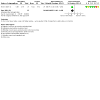
Comment in
-
Lifestyle and dietary interventions for Ménière's disease: Summary of a Cochrane review.Explore (NY). 2023 Jul-Aug;19(4):623-624. doi: 10.1016/j.explore.2023.05.003. Epub 2023 May 25. Explore (NY). 2023. PMID: 37263867 No abstract available.
-
Is There Any Value in Promoting a Healthy Diet and Lifestyle in Patients With Ménière Disease?-A Cochrane Review Summary With Commentary.Am J Phys Med Rehabil. 2024 Jun 1;103(6):545-546. doi: 10.1097/PHM.0000000000002450. Epub 2024 Feb 3. Am J Phys Med Rehabil. 2024. PMID: 38363688 No abstract available.
References
References to studies included in this review
Hanner 2010 {published data only}
-
- Jennische E. Cochrane ENT enquiry regarding your paper [personal communication]. E-mail to: K Webster 14 September 2022.
Kitahara 2016 {published data only}
-
- Kitahara T, Okamoto H, Fukushima M, Sakagami M, Ito T, Yamashita A, et al. A two-year randomized trial of interventions to decrease stress hormone vasopressin production in patients with Meniere's disease - a pilot study. PLOS One 2016;11(6):e0158309. [DOI: 10.1371/journal.pone.0158309] - DOI - PMC - PubMed
-
- NCT01099046. Stress management therapy for Meniere's disease. https://clinicaltrials.gov/ct2/show/NCT01099046 (first received 6 April 2010).
References to studies excluded from this review
Cui 2022 {published data only}
Faag 2017 {published data only}
-
- Faag C, Bergenius J, Forsberg C, Langius-Eklof A. Feasibility and effects of a nursing intervention for patients with peripheral vestibular disorders. Rehabilitation Nursing 2017;42(5):274-81. - PubMed
Garcia 2013 {published data only}
Hong 2011 {published data only}
-
- Hong L, Zeng DZ, Zhang L, Luo SF, Zeng Y. Effect of Chinese medicine combined with flunarizine on Meniere's disease. Journal of Hainan Medical College 2011;17(6):774-6.
Hussain 2018 {published data only}
Ingvardsen 2016 {published data only}
-
- Ingvardsen CJ, Klokker M. Antisecretory therapy with no improvement in functional level in Menieres disease. Acta Oto-Laryngologica 2016;136(3):232-5. - PubMed
Lee 2019 {published data only}
Leong 2013 {published data only}
-
- Leong SC, Narayan S, Lesser TH. Antisecretory factor-inducing therapy improves patient-reported functional levels in Meniere's disease. Annals of Otology, Rhinology, and Laryngology 2013;122(10):619-24. - PubMed
Liu 2020 {published data only}
-
- Liu JL, Liu JG, Chen XB, Liu YH. The benefits of betahistine or vestibular rehabilitation (Tetrax biofeedback) on the quality of life and fall risk in patients with Meniere's disease. Journal of Laryngology and Otology 2020;134(12):1073-6. - PubMed
NCT05328895 {published data only}
-
- NCT05328895. Transcranial auricular vagus nerve stimulation for Meniere disease. https://clinicaltrials.gov/show/NCT05328895 (first received 14 April 2022).
NCT05355610 {published data only}
-
- NCT05355610. Vestibular rehabilitation with intratympanic drug therapy in Meniere's disease. https://ClinicalTrials.gov/show/NCT05355610 (first received 2 May 2022).
Richards 1971 {published data only}
-
- Richards SH. Meniere's disease. Practitioner 1971;207(242):759-66. - PubMed
Shin 2017 {published data only}
-
- Shin S, Kim J, Yu A, Seo H, Shin M, Cho J, et al. A herbal medicine, Gongjindan, in subjects with chronic dizziness (GOODNESS study): study protocol for a prospective, multicenter, randomized, double-blind, placebo-controlled, parallel-group, clinical trial for effectiveness, safety, and cost-effectiveness. Evidence-based Complementary and Alternative Medicine 2017;2017:4363716. - PMC - PubMed
Sun 2014 {published data only}
-
- NCT01454726. Clinical trial of traditional Chinese Diaoshi Jifa therapy of Meniere's disease. https://clinicaltrials.gov/ct2/show/NCT01454726 (first received 19 October 2011).
Yardley 2006 {published data only}
-
- Yardley L, Kirby S. Evaluation of booklet-based self-management of symptoms in Meniere disease: a randomized controlled trial. Psychosomatic Medicine 2006;68(5):762-9. - PubMed
-
- Yardley L, Kirby SE, Bronstein AM. A randomized controlled trial of the effectiveness of bibliotherapy-based vestibular rehabilitation for members of the Meniere's Society. Journal of Vestibular Research 2004;14(2/3):285-6, Abstract P199.
Zhong 2008 {published data only}
-
- Zhong LJ. Integrated traditional Chinese and western medicine therapy for vertigo of Meniere disease in 32 cases. Modern Journal of Integrated Traditional Chinese and Western Medicine [Xian Dai Zhong Xi Yi Jie He Za Zhi] 2008;17(2):205.
References to ongoing studies
IRCT20201102049238N1 {published data only}
-
- IRCT20201102049238N1. The effect of Nigella sativa on Meniere's disease. https://en.irct.ir/trial/53458 (first received 13 January 2021).
IRCT20210716051908N1 {published data only}
-
- Evaluation of the effect of vitamin D supplementation in reducing vertigo attacks and severity in Meniere’s patients, A Randomized Double-Blind Clinical Trial with Placebo-Controlled. https://trialsearch.who.int/Trial2.aspx?TrialID=IRCT20210716051908N1.
Additional references
AAO‐HNS 1995
-
- Committee on Hearing and Equilibrium Guidelines for the Diagnosis and Evaluation of Therapy in Meniere's Disease. Otolaryngology – Head and Neck Surgery 1995;113(2):181-5. - PubMed
Acharya 2017
-
- Acharya A, Singh MM, Shrestha A. First line treatment of Ménière's disease: a randomized controlled trial. Journal of Lumbini Medical College 2017;4(2):68-71.
Baloh 2001
-
- Baloh RW. Prosper Ménière and his disease. Archives of Neurology 2001;58:1151-6. - PubMed
Banks 2012
-
- Banks C, McGinness S, Harvey R, Sacks R. Is allergy related to Meniere's disease? Current Allergy and Asthma Reports 2012;12:255-60. - PubMed
Basura 2020
-
- Basura GJ, Adams ME, Monfared A, Schwartz SR, Antonelli PJ, Burkard R, et al. Clinical Practice Guideline: Ménière’s Disease. Otolaryngology Head and Neck Surgery 2020;162(2 Suppl):S1-55. - PubMed
Bjorck 2000
Bruderer 2017
-
- Bruderer SG, Bodmer D, Stohler NA, Jick SS, Meier CR. Population- based study on the epidemiology of Ménière's disease. Audiology & Neuro-otology 2017;22(2):74-82. - PubMed
Carlisle 2017
-
- Carlisle JB. Data fabrication and other reasons for non-random sampling in 5087 randomised, controlled trials in anaesthetic and general medical journals. Anaesthesia 2017;72:944-52. - PubMed
Chiarella 2015
di Berardino 2012
-
- di Berardino F, Cesarani A. Gluten sensitivity in Meniere's disease. Laryngoscope 2012;122(3):700-2. - PubMed
Gacek 2009
-
- Gacek RR. Ménière's disease is a viral neuropathy. ORL; Journal for Oto-rhino-laryngology and Its Related Specialties 2009;71(2):78-86. - PubMed
Greco 2012
-
- Greco A, Gallo A, Fusconi M, Marinelli C, Macri GF, Vincentiis M. Meniere's disease might be an autoimmune condition? Autoimmunity Reviews 2012;11(10):731-8. - PubMed
Hallpike 1938
Handbook 2011
-
- Higgins JPT, Green S (editors). Cochrane Handbook for Systematic Reviews of Interventions Version 5.1.0 [updated March 2011]. The Cochrane Collaboration, 2011. Available from training.cochrane.org/handbook/archive/v5.1/.
Handbook 2021
-
- Higgins JP, Thomas J, Chandler J, Cumpston M, Li T, Page MJ, et al editor(s). Cochrane Handbook for Systematic Reviews of Interventions Version 6.2 (updated February 2021). Cochrane, 2021. Available from training.cochrane.org/handbook.
Harcourt 2014
-
- Harcourt J, Barraclough K, Bronstein AM. Meniere's disease. BMJ 2014;349:g6544. - PubMed
Harris 2010
-
- Harris JP, Alexander TH. Current-day prevalence of Ménière’s syndrome. Audiology & Neuro-otology 2010;15(5):318-22. - PubMed
Hébert 2016
Honrubia 1996
-
- Honrubia V, Bell TS, Harris MR, Baloh RQ, Fisher LM. Quantitative evaluation of dizziness characteristics and impact on quality of life. American Journal of Otology 1996;17:595-602. - PubMed
Huppert 2010
Jacobsen 1990
-
- Jacobsen GP, Newman CW. The development of the Dizziness Handicap Inventory. Archives of Otolaryngology--Head & Neck Surgery 1990;116(4):424-7. - PubMed
Jacobsen 1998
-
- Jacobsen GP, Calder JH. A screening version of the Dizziness Handicap Inventory. American Journal of Otology 1998;19(6):804-8. - PubMed
Kirby 2012
-
- Kirby SE, Yardley L. Physical and psychological triggers for attacks in Ménière's disease: the patient perspective. Psychotherapy and Psychosomatics 2012;81:396-8. - PubMed
Lange 2001
-
- Lange S, Lönnroth I. The antisecretory factor: synthesis, anatomical and cellular distribution, and biological action in experimental and clinical studies. International Review of Cytology 2001;210:39-75. - PubMed
Lianov 2010
-
- Lianov L, Johnson M. Physician competencies for prescribing lifestyle medicine. JAMA 2010;304(2):202-3. - PubMed
Lopez‐Escamez 2015
-
- Lopez-Escamez JA, Carey J, Chung W, Goebel JA, Magnusson M, Mandalà M, et al. Diagnostic criteria for Menière’s disease. Journal of Vestibular Research 2015;25:1-7. - PubMed
Meikle 2012
-
- Meikle MB, Henry JA, Griest SE, Stewart BJ, Abrams HB, McArdle R, et al. The Tinnitus Functional Index: development of a new clinical measure for chronic, intrusive tinnitus. Ear and Hearing 2012;33(2):153-76. - PubMed
Murphy 1999
-
- Murphy MP, Gates GA. Measuring the effects of Menieres disease: results of the Patient-Oriented Severity Index (MD POSI) Version 1. Annals of Otology, Rhinology and Laryngology 1999;108(4):331-7. - PubMed
Newman 1996
-
- Newman CW, Jacobsen GP, Spitzer JB. Development of the Tinnitus Handicap Inventory. Archives of Otolaryngology--Head & Neck Surgery 1996;122(2):143-8. - PubMed
Requena 2014
-
- Requena T, Espinosa-Sanchez JM, Cabrera S, Trinidad G, Soto-Varela A, Santos-Perez S, et al. Familial clustering and genetic heterogeneity in Meniere’s disease. Clinical Genetics 2014;85:245-52. - PubMed
RevMan 2020 [Computer program]
-
- Review Manager (RevMan). Version 5.4. Copenhagen: Nordic Cochrane Centre, The Cochrane Collaboration, 2020.
Sharon 2015
-
- Sharon J. Treatment of Menière's disease. Current Treatment Options in Neurology 2015;17:14. - PubMed
Smith 2005
-
- Smith WK, Sankar V, Pfleiderer AG. A national survey amongst UK otolaryngologists regarding the treatment of Ménière's disease. Journal of Laryngology and Otology 2005;119:102-5. - PubMed
Söderman 2002
-
- Söderman AH, Bagger-Sjöbäck D, Bergenius J, Langius A. Factors influencing quality of life in patients with Ménière's disease, identified by a multidimensional approach. Otology & Neurotology 2002;23(6):941-8. - PubMed
Tesio 1999
-
- Tesio L, Alpini D, Cesarani A, Perucca L. Short form of the Dizziness Handicap Inventory: construction and validation through Rasch analysis. American Journal of Physical Medicine and Rehabilitation 1999;78(3):233-41. - PubMed
Tyrrell 2016
Ulgheri 2010
-
- Ulgheri C, Paganini B, Rossi F. Antisecretory factor as a potential health-promoting molecule in man and animals. Nutrition Research Reviews 2010;23:300-13. - PubMed
van Cruijsen 2003
-
- Cruijsen N, Wit H, Albers F. Psychological aspects of Ménière's disease. Acta Oto-Laryngologica 2003;123(3):340-7. - PubMed
Wallace 2017
Webster 2021a
Webster 2021b
Yamakawa 1938
-
- Yamakawa K. Hearing organ of a patient who showed Meniere's symptoms [Japanese]. Journal of the Otolaryngological Society of Japan 1938;44:2310-2.
Yardley 1992a
-
- Yardley L, Putman J. Quantitative analysis of factors contributing to handicap and distress in vertiginous patients: a questionnaire study. Clinical Otolaryngology 1992;17:231-6. - PubMed
Zeng 2021
-
- Zeng L, Brignardello-Petersen R, Hultcrantz M, Siemieniuk RSC, Santesso N, Traversy G, et al. GRADE guidelines 32: GRADE offers guidance on choosing targets of GRADE certainty of evidence ratings. Journal of Clinical Epidemiology 2021;137:163-75. - PubMed
References to other published versions of this review
Publication types
MeSH terms
Substances
LinkOut - more resources
Full Text Sources
Medical
Research Materials
Miscellaneous

